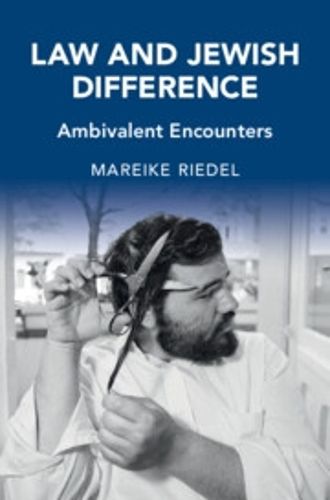Readings Newsletter
Become a Readings Member to make your shopping experience even easier.
Sign in or sign up for free!
You’re not far away from qualifying for FREE standard shipping within Australia
You’ve qualified for FREE standard shipping within Australia
The cart is loading…






After centuries of persecution and discrimination, Jews are today often seen as a successful and well-integrated religious minority group in a 'Judeo-Christian West'. This book qualifies this narrative by exploring the legacy of Christian ambivalence towards Jews in contemporary secular law. By placing disputes over Jewish practices, such as infant male circumcision and the construction of eruvin, within a longer historical context, the book traces how Christian ambivalence towards Jews and Christianity's narrative of supersession became secularised into a cultural repertoire that has shaped central ideas and knowledge underpinning secular law. Christian ambivalence, this book argues, continues to circumscribe not only the rights and equality of Jews but of other non-Christians too. In considering the interaction between law and Christian ambivalence towards Jews, the book engages with broader questions about the cultural foundations of Western secular law, the politics of religious freedom, the racialisation of religion, and the ambivalent nature of legal progress.
$9.00 standard shipping within Australia
FREE standard shipping within Australia for orders over $100.00
Express & International shipping calculated at checkout
After centuries of persecution and discrimination, Jews are today often seen as a successful and well-integrated religious minority group in a 'Judeo-Christian West'. This book qualifies this narrative by exploring the legacy of Christian ambivalence towards Jews in contemporary secular law. By placing disputes over Jewish practices, such as infant male circumcision and the construction of eruvin, within a longer historical context, the book traces how Christian ambivalence towards Jews and Christianity's narrative of supersession became secularised into a cultural repertoire that has shaped central ideas and knowledge underpinning secular law. Christian ambivalence, this book argues, continues to circumscribe not only the rights and equality of Jews but of other non-Christians too. In considering the interaction between law and Christian ambivalence towards Jews, the book engages with broader questions about the cultural foundations of Western secular law, the politics of religious freedom, the racialisation of religion, and the ambivalent nature of legal progress.